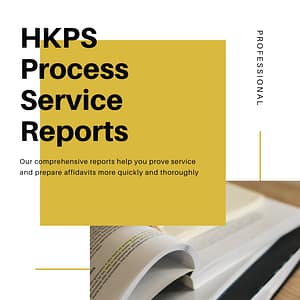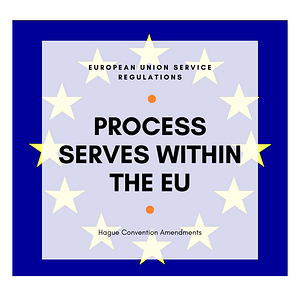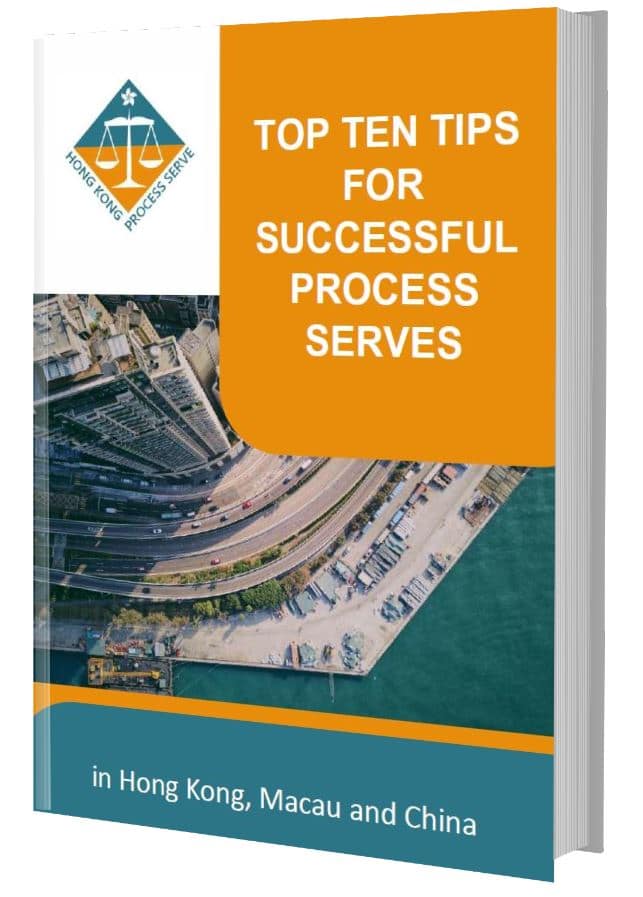What is an affidavit?
An affidavit is a voluntary sworn or affirmed, written statement of fact by an individual that the maker promises is true. It is made under oath or affirmation in front of a person authorized to do so by law.
If the affidavit arises from a process serve, it should be drafted by a lawyer or solicitor. For legal purposes, an affidavit must be written according to jurisdictional and legal practice.
In addition to process serves, affidavits may be used in connection with various legal proceedings, such as divorces, lease breaks or statutory demands.
What is it used for in process serving?
Sworn Statement: Swearing is known as swearing an oath. An oath is a form of words spoken by a person to promise that they are telling the truth. An oath refers to the deity recognised by the religion of the person swearing the oath.
Affirmed Statement: On the other hand, an affirmation has the same legal effect as an oath but does not refer to the deity.
Which is best? It is up to the person making the affidavit to choose swearing or affirming. It makes no difference which is used.
What is it used for in process serving?
Process serving usually requires an affidavit in case the Court requires proof that the documents were legally served. The affidavit is the proof of the service.
The majority of affidavits require to be either sworn or affirmed. The affidavits are kept on file in the event that the recipient denies having been served.
Occasionally, some clients simply require a signed statement describing the serve. This is something that needs to be decided by the client. However, if there is any doubt, HKPS recommends that the affidavit is sworn.
What kind of affidavit is used for a Hong Kong process serve?
When Hong Kong Process Serve (HKPS) conducts a service of process for a client, the kind of affidavit will depend on:
- The nature of the case such as divorce or commercial litigation.
- Originating jurisdiction that is the country or state from where the documents were issued.
Can you prepare an affidavit?
No. We are not lawyers. Therefore, we cannot prepare affidavits on your behalf. In addition, affidavits vary widely between jurisdictions.
However, many clients – including international lawyers – use our comprehensive reports as the basis of their affidavit. In Hong Kong, over 90% of affidavits sworn by HKPS staff are done in front of a Commissioner of Oaths from the Home Affairs Department.
Our affidavits sworn in front of a Commissioner of Oaths have never been rejected in court.
Should you wish to use the services of a solicitor or Notary Public to witness the swearing of an affidavit, HKPS can arrange this but at an additional cost to our quotation.
What is the language of an affidavit?
Hong Kong has three official languages – English, Mandarin (Putonghua) and Cantonese. Affidavits may be sworn in English.
HKPS will never ask you to pay to have an English affidavit translated into Chinese.
How long is an affidavit?
The length depends on multiple factors.
Staff at the Hong Kong Home Affairs Department attach a single cover sheet to the statement. This is then completed by our server who is required to enter personal details including name and address.
The following simple statement must be hand-written by the server: “The information contained in the statement attached, marked “A” and “B”, is true and correct.” One of the briefest affidavits HKPS completed was just three pages long, including the cover sheet.
Some affidavits are as long as 15 pages, but the majority are less than 10.
What happens after an affidavit is sworn?
Once HKPS has sworn the affidavit, we will email a copy to you. As required, we can send the original to you by either Hong Kong Post’s Registered Mail or by courier. For Hong Kong-based clients, we use a local courier service.
Note: For legal firms who wish to know more about the serving and swearing of documents in Hong Kong, please refer to the Hong Kong Department of Justice Bilingual Laws Information System (BLISS) and search on Chapter 4A.
Warning: A false affidavit is a criminal offence
The Hong Kong Government takes a dim view of false statements. Under Hong Kong’s Crimes Ordinance (Cap 200), any person who knowingly and wilfully makes a statement false in a material particular in a statutory declaration, is guilty of an offence. The penalty is up to two years imprisonment and possibly a fine.
POST GLOSSARY
A written statement confirmed by oath or affirmation for use as evidence in court. An affidavit can be used as proof in a law court.
A statement that is declared to be true.
A jurisdiction is a state or other area in which a particular court and system of laws has official power to make legal decisions, judgements or to enforce laws.
For example, if you:
- are English
- were married in England
- seeking a divorce from a Hong Kong resident spouse whilst living in England,
your jurisdiction – and the manner in which the documents are served – falls under English and not Hong Kong jurisdiction.
If you are unsure of jurisdiction, you need to obtain formal, legal advice.







